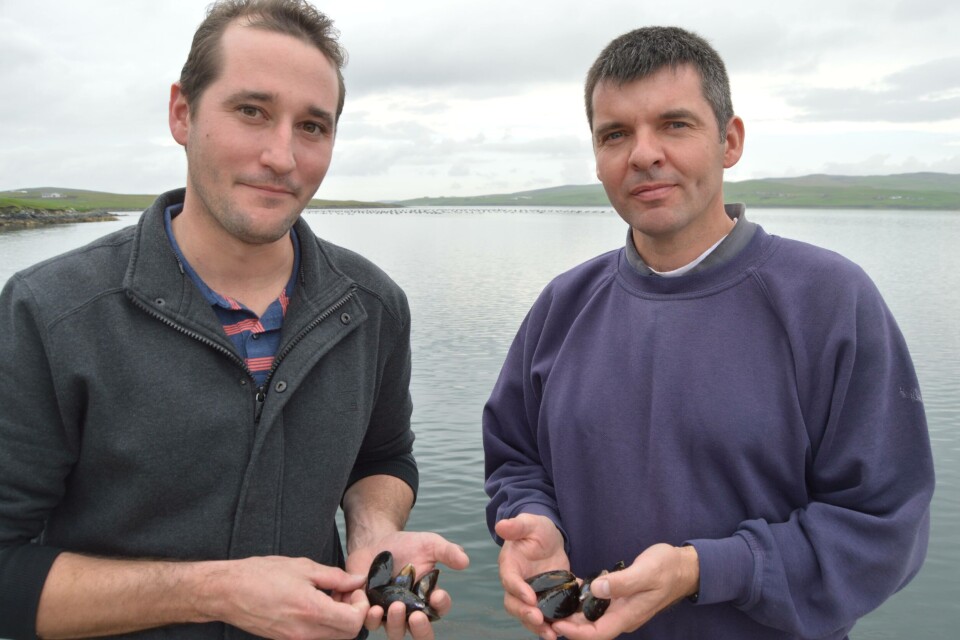
Spring Bay boost for Scots mussel hatchery project
An innovative project to get Scottish mussels to spawn in a hatchery environment has received an international boost with a visit from Tasmanian partners Spring Bay Seafoods – operators of one of the world’s few commercial-scale mussel hatcheries.
The partners first met during a four-day fact-finding mission to Spring Bay Seafoods in February 2015, the insights from which helped inform the £1.7 million 30-month project by the Scottish Shellfish Marketing Group (SSMG) and University of the Highlands and Islands (UHI), with co-funding from the Scottish Aquaculture Innovation Centre (SAIC), Highlands and Islands Enterprise, and the European Maritime and Fisheries Fund.
Now, with the first year of project operations well underway, the team have hosted Spring Bay Seafoods’ hatchery manager Bryce Daly for a three-week visit to the NAFC Marine Centre UHI in Scalloway, Shetland. There, he has been observing the systems in place, sharing his husbandry expertise and helping the team hone the skills necessary to rear mussels in a hatchery environment.
Project partners optimistic
Michael Tait, chairman of SSMG and Shetland-based mussel farmer, said: “The visit has come at a hugely opportune time for the project. We have had lots of spawning but increasing post-spawn survival rates has been a core focus. Bryce, with his many years of experience in hatchery production, has helped identify several small adjustments that should significantly improve survivability.”
These adjustments are already being implemented and closely monitored on a new batch of mussels, and the project partners are optimistic that they will have the first numbers of hatchery-reared spat going out to farm sea sites soon.
Desire and determination
Daly added: “The team have all the systems in place. They have the knowledge and expertise necessary. Most of all, they have the desire and determination to make it work. I look forward to seeing them reap real results as we remain in close contact throughout the project lifetime.”
Currently, Scotland produces more than 7,700 tonnes of farmed mussels – 74 per cent of which are produced in Shetland – generating an estimated £11.7m for the economy.
If successful, the pilot hatchery project will lead to a commercial-scale hatchery, resulting in higher and more reliable yields of spat, additional jobs and wider distribution of sites – all of which combined will help towards the Scottish shellfish sector’s growth ambitions of 21,000 tonnes annually by 2030.




















































